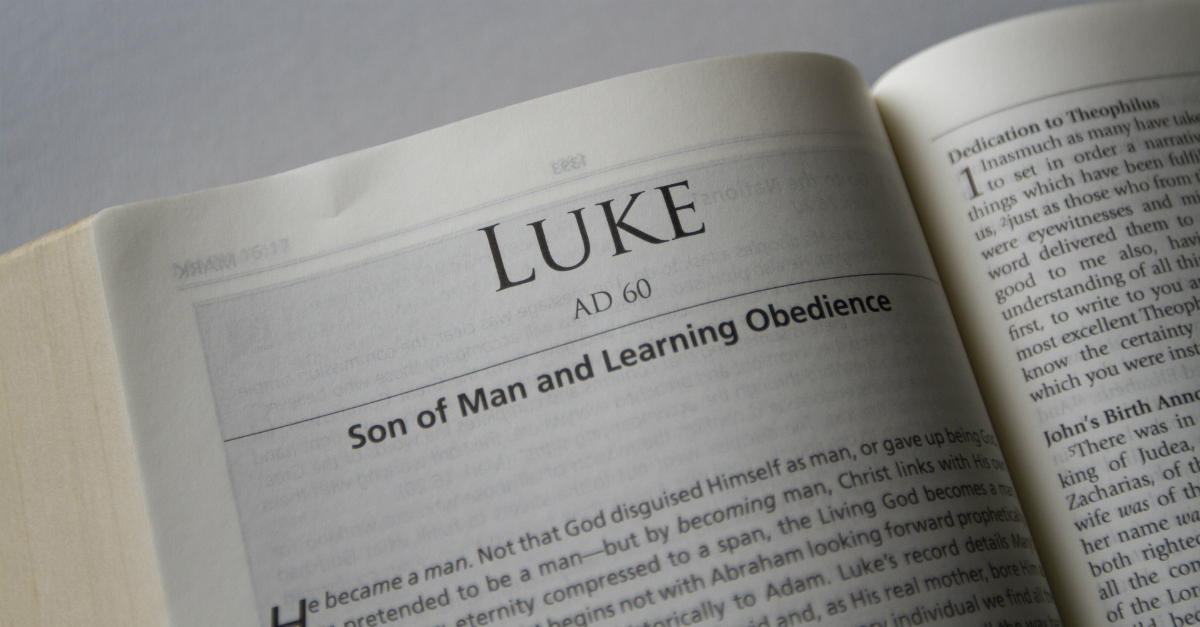The Powerful Meaning and Promise of ‘The Spirit of the Lord Is Upon Me’ in Both the Old and New Testaments

The Spirit of the Lord God is upon Me, Because the Lord has anointed Me To preach good tidings to the poor; He has sent Me to heal the brokenhearted, To proclaim liberty to the captives, And the opening of the prison to those who are bound; To proclaim the acceptable year of the Lord, And the day of vengeance of our God; To comfort all who mourn – Isaiah 61:1-2 (NKJV)
In the book of Isaiah, we find this passage of scripture. When you get to the New Testament, Jesus opens and reads this same passage in the Gospel of Luke. What is the significance of this? Why does this passage “the Spirit of the Lord is upon me” appear in both Testaments?
This passage of scripture represents a prophecy and a fulfillment of prophecy; or a promise and a fulfillment of a promise. Let’s see how we can understand this further.
About Isaiah and This Old Testament Scripture
Isaiah was an Old Testament prophet and his book is considered one of the Major Prophets. The books written by the prophets in the Old Testament were classified as Major or Minor. The difference was not a distinction in importance, simply a distinction in the size of their books. The Major Prophets books were longer than the Minor Prophets.
Isaiah wrote during the reigns of four Judean kings, Uzziah, Jotham, Ahaz, and Hezekiah. He was likely killed during the reign of Manasseh. A great way to understand what was happening in the time of Israel during the writings of these prophets is to read Chronicles and Kings in the Old Testament. It can help you in understanding the prophets and their writings a little better.
When you read these verses in Isaiah 61 you will see that Isaiah is looking forward to a favorable year of the Lord. This was a passage of hope and great expectation in the nation of Israel. However, what you will see is that while “the Spirit of the Lord is upon me” appears in both Testaments, there is a different reaction and expectation that happens as a result of these.

What Does 'The Spirit of the Lord is Upon Me' Mean in Isaiah?
There is some debate about whether the object of this is referring to Isaiah himself or is speaking of Jesus Christ. John Gill's Commentary tells us, "According to the Targum (a Amramaic translation of hte Hebrew Bible), these are the words of the prophet concerning himself; and so say Aben Ezra and Kimchi (well-known Jewish Biblical commentators and philosophers); but the latter elsewhere says they are the words of the Messiah, who should say, "because the Lord hath anointed me"; and another of their writers is in a doubt about them; either, says he, they are the words of the prophet with respect to the Messiah, or the words of the prophet concerning himself; but there is no doubt but the Messiah himself is the person speaking, as appears from ( Luke 4:17-21 ) , on whom the Spirit of God was; not his grace and gifts only, but the person of the Spirit, the third Person in the Trinity, equal with the Father and the Son; to whom several divine actions are ascribed, and to whom many things relating to Christ are attributed, and who is described as residing on him, and who, by the baptist, was seen upon him, ( Isaiah 11:2 ) ( John 1:32 John 1:33 ) the phrase denotes his continuance with him, whereby he was qualified, as man and Mediator,"
The Spirit of the Lord belongs to all the prophets and ministers of God, but chiefly to Christ, of whose abundant graces everyone receives according as it pleases him to distribute. The prophets had the Spirit of God moving them at times, both instructing them what to say and exciting them to say it. Christ had the Spirit always resting on him without measure; but to the same intent that the prophets had, as a Spirit of counsel and a Spirit of courage.
‘The Spirit of the Lord Is upon Me’ in The New Testament
So He came to Nazareth, where He had been brought up. And as His custom was, He went into the synagogue on the Sabbath day, and stood up to read. And He was handed the book of the prophet Isaiah. And when He had opened the book, He found the place where it was written: “The Spirit of the Lord is upon Me, Because He has anointed Me To preach the gospel to the poor; He has sent Me to heal the brokenhearted, To proclaim liberty to the captives And recovery of sight to the blind, To set at liberty those who are oppressed; To proclaim the acceptable year of the Lord.” Then He closed the book, and gave it back to the attendant and sat down. And the eyes of all who were in the synagogue were fixed on Him. And He began to say to them, “Today this Scripture is fulfilled in your hearing.” – Luke 4:18-21 (NKJV)
When you read this passage of scripture, I believe the most amazing part is in verse 21:
...Today this Scripture is fulfilled in your hearing. – Luke 4:21
This was a bold and astonishing declaration and everyone in that audience was not ready to receive it. In fact, as Jesus continued speaking the people got so angry that they tried to throw him off a cliff:
All the people in the synagogue were furious when they heard this. They got up, drove him out of the town, and took him to the brow of the hill on which the town was built, in order to throw him off the cliff. But he walked right through the crowd and went on his way. – Luke 4:28-30
Now that we’ve looked at the hopeful anticipation reaction in Isaiah versus the rather aggressive reaction in Luke, let’s consider three important reasons why this passage “the Spirit of the Lord is upon me” appears in both Testaments.

Reason #1: Validates the Old Testament Scriptures
Jesus made a habit of quoting from the Old Testament scriptures. Every time he did this, he was adding validity and credibility to the Old Testament. If you remember when he was tempted in the wilderness by Satan, he quoted the Word of God, usually starting with “It is written.”
At that time, the only written word of God was the Old Testament. Jesus quoted the Old Testament and used it as the authoritative Word of God. What was true when Jesus quoted it is still true today. The Old Testament has the same power and authority and that has not changed.
Reason #2: Fulfills the Old Testament Prophecy
We have the distinct advantage of being able to look back from a historical perspective. What we are able to do from this viewpoint is to compare Old Testament prophecies with New Testament fulfillments, especially pointing to the first coming of Jesus.
This is exactly what Jesus did when he stood and read this verse in Luke 4. It’s one important reason why “the Spirit of the Lord is upon me” appears in both Testaments.
Jesus was using it to validate who he was.
Reason #3: Establishes A New Testament Messiah
This verse was a promise of hope and God’s favor. As we will soon see, Jesus reminded them of this; but the way he did it wasn’t met with great enthusiasm. What Jesus was doing, however, was pointing to himself as the hope and joy that was predicted in Isaiah 61.
I know we think of this now as pretty normative; but for the people hearing this, it had to be a really shocking statement to them. I’m sure many thought: who is this man and who does he think he is?
The good news is, Jesus knew exactly who he was—and it was time that they knew it, too.
There are so many lessons that can be learned from why “the Spirit of the Lord is upon me.” Even in both Testaments, there are different lessons that can be learned. What I want to do, however, is give you what I call "walkaway truths." I'm sure you can find more—and I encourage you to do so—but here are three walkaway truths to consider:

Truth #1: The Bible Is Always True
Even though this seems like a simple reason, it’s one that can get overlooked. The reason why “the Spirit of the Lord is upon me” appears in both Testaments is because it’s true. In fact, the Bible is always true.
Because it is true we can depend on it for hope and for life. The beauty of biblical truth is that it is objective and it does not require your agreement for it to be true.
The people in the synagogue may have not agreed with Jesus, but it didn’t change the reality of who he is.
Truth #2: Truth Is Not Always Well-Received
It’s important to understand, as we saw in Luke, that just because something is true doesn’t mean it will be well-received. Many times, people don’t really want to accept the truth—because it often reveals something inside of them.
This is one of the challenges in sharing the gospel, people have to be confronted with the truth that they are sinners. Regardless of how lovingly you may try to present it, this truth will not always be received well. Don’t be shocked if people don’t want to hear the real truth. If they didn’t like Jesus when he said it, they may not like you either.
Truth #3: Speak the Truth Anyway
Regardless of people’s response to truth, that is not an excuse for not speaking it. One of the challenges in our society is we have a hard time distinguishing what is really the truth. With the myriad of voices out there, sometimes the truth gets lost in the muddle. That’s why your best bet is to always go back to the place where truth resides and where truth does not change. That place is the Word of God.
Don’t be like the people in the synagogue who could not see the truth of who Jesus was because they had made up their mind of what truth should be.
In other words, don’t allow the truth of God’s Word to be shaped by your opinions. Rather, let your opinions be shaped by the truth of God’s Word. This may not make you popular, but at least you will be on the side of truth.
Conclusion
It’s been said that the Old Testament is the New Testament concealed, and the New Testament is the Old Testament revealed.
I think in these two verses in Isaiah and Luke we see just that. Isaiah points to a future that Jesus fulfills by referring back to the past in Luke. It’s one of the great ways God ties his word together—so you can have complete confidence in trusting his word and his plan of hope and salvation.
Photo Credit: ©GettyImages/Javier Art

This article is part of our larger resource library of popular Bible verse phrases and quotes. We want to provide easy to read articles that answer your questions about the meaning, origin, and history of specific verses within Scripture's context. It is our hope that these will help you better understand the meaning and purpose of God's Word in relation to your life today.
"Be Still and Know that I Am God"
"Pray Without Ceasing"
"Fearfully and Wonderfully Made"
"All Things Work Together for Good"
"Do Not Fear"
Originally published September 03, 2020.





